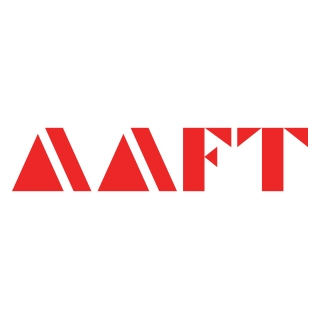Food, Science & Wellness: Is a Career in Nutrition & Dietetics Right for You?
This blog is about how nutrition and dietetics are important in life and how we can build a career in it.
What Does It Mean to Truly Nourish a Life? We eat every day. Sometimes with care. Often without thought. A sandwich between meetings. A midnight snack. A celebratory feast. A silent breakfast alone.
But have we ever paused to ask: what are we really feeding?
Is it the body that hungers, or is it something deeper—something more human?
In many ways, food is our first language. Before we learn to speak, we learn to taste. We are comforted by milk before we’re comforted by words. We gather around tables long before we gather around ideas. Food is emotion, memory, medicine, and culture — all wrapped up in one bite. And for those who choose a career in nutrition and dietetics, food is also science. A science that touches every single life, every single day.
Do you want free career counseling?
Ignite Your Ambitions- Seize the Opportunity for a Free Career Counseling Session.
- 30+ Years in Education
- 250+ Faculties
- 30K+ Alumni Network
- 10th in World Ranking
- 1000+ Celebrity
- 120+ Countries Students Enrolled
To nourish is to connect. To heal. To listen. To empower. And that’s what nutritionists and dietitians do.
The Art and Science of Eating
We often separate science from soul, as if they are opposites. But the best nutritionists know that real nourishment lies at the intersection, like sunlight meeting soil to grow something new.
Book Now →
The science is rigorous. It dives into metabolism, biochemistry, physiology, clinical nutrition, public health, microbiomes, chronic diseases, and ever-evolving research. It asks hard questions: What causes insulin resistance? How does gut health impact the brain? Can dietary choices prevent cancer?
But the soul of the profession — that’s something else.
It’s found in the way a dietitian listens to someone struggling with emotional eating. It’s in the quiet transformation of a patient who learns to love food again. It’s in the joy of helping a community access healthy meals or guiding a child with allergies through a world full of dangers.
Do you want free career counseling?
Ignite Your Ambitions- Seize the Opportunity for a Free Career Counseling Session.Read Also: Is Dietetics the Right Career for You? Skills, Passion & Purpose
Science provides the map. Empathy provides the compass.
Together, they make nutrition and dietetics not just a profession, but a purpose.
What Do Nutritionists and Dietitians Actually Do?
Unlike what social media influencers might suggest, this field is not about handing out diet plans or telling people what not to eat. It’s about education, empowerment, and evidence-based care.
Nutrition professionals work in a vast range of settings:
Hospitals: Helping patients manage conditions like diabetes, heart disease, or kidney disorders.
Schools and universities: Designing meals that support growing bodies and developing brains.
Sports teams and athletic programs: Optimizing performance through precision nutrition.
Community health programs: Tackling malnutrition, obesity, and food insecurity at the grassroots.
Research labs: Investigating how nutrients interact with genes, immunity, hormones, and mental health.
Corporate wellness initiatives: Improving productivity and well-being in the workplace.
Private practice: Offering individualized support, respecting cultural preferences, medical conditions, and emotional needs.
Some become authors or content creators, translating complex nutrition science into digestible, everyday language. Others become policy advocates, pushing for healthier food environments, better labelling, or school meal reform.
Every day, these professionals translate science into simple, life-changing strategies.
They don’t just treat, they teach. They don’t just inform, they inspire.
They become allies in healing, prevention, and transformation.
Exploring the Roles, Impact, and Earning Potential of Nutritionists and Dietitians
| Setting | Role of Nutritionists and Dietitians | Insights & Impact | Average Salary (INR/month) | |
| Hospitals | – Develop clinical nutrition plans- Manage diet therapy for chronic diseases- Coordinate with medical teams | Why it matters: Proper nutrition accelerates healing, reduces hospital stays, and prevents complications. Essential in ICU, post-surgery, and chronic disease management. | ₹25,000 – ₹60,000 | |
| Schools and Universities | – Plan healthy meals in cafeterias- Conduct awareness sessions- Support student wellness programs | Why it matters: Early education on nutrition can prevent long-term health issues. Supports learning outcomes and physical growth. | ₹20,000 – ₹50,000 | |
| Sports Teams & Athletic Programs | – Create sport-specific diets- Guide athletes on recovery nutrition- Optimize performance through food | Why it matters: Diet impacts stamina, strength, and injury recovery. Sports dietitians help athletes achieve peak performance. | ₹40,000 – ₹1,00,000 (can go higher in elite teams) | |
| Community Health Programs | – Conduct public health education- Address malnutrition, obesity- Develop outreach nutrition plans | Why it matters: Crucial for improving health in underserved areas. Supports national missions like Poshan Abhiyaan. | ₹20,000 – ₹45,000 | |
| Research Labs | – Study nutrition trends- Publish evidence-based reports- Contribute to public health policy | Why it matters: Drives innovation in food science and informs dietary guidelines and policy decisions. | ₹30,000 – ₹70,000 | |
| Corporate Wellness Initiatives | – Develop employee diet plans- Conduct wellness sessions- Improve workplace productivity through health | Why it matters: Reduces absenteeism and healthcare costs while enhancing employee well-being. Growing demand in IT and MNC sectors. | ₹35,000 – ₹80,000 | |
| Private Practice | – Personalized diet counseling- Support lifestyle changes- Focus on specific issues like PCOS, weight, diabetes | Why it matters: Empowers individuals through tailored guidance. Income potential increases with reputation and client base. | ₹30,000 – ₹2,00,000+ (depends on clients and specialization) |
Read Also: Top 10 Health and Wellness Trends for 2025

Why This Field Matters More Than Ever
The 21st century is paradoxical: we are both overfed and undernourished. We live in a time where ultra-processed food is more accessible than real vegetables. Where wellness is marketed as a luxury. Where information is everywhere, but clarity is rare.
And with the rise and reach of social media influencers, the lines are blurring. More and more people are turning to trendy wellness personalities for advice, mistaking popularity for expertise. In doing so, they often bypass qualified nutritionists and dietitians, trading science for soundbites and thoughtful care for quick fixes.
Nutritionists and dietitians stand at the frontlines of this nutritional confusion.
They are the interpreters, turning science into care. They are the protectors, advocating for food justice, sustainable farming, and health equity. They are the visionaries — imagining a world where food is not just consumed, but respected.
In a world full of dietary noise, they bring the signal.
They help people sift through misinformation to find what actually nourishes them.
Is This Career Right for You?
Ask yourself some questions. Not about how many grams of protein are in a banana — that you can Google.
Ask instead:
Do you believe food can heal, not just the body, but the soul?
Are you curious about how science and daily habits intersect?
Do you want to help people live fuller, healthier, more joyful lives?
Are you willing to study hard and still remain humble in the face of changing knowledge?
Do you find meaning in service, not just success?
If so, nutrition and dietetics may be more than a career path. It may be a calling.
The Road to Becoming a Nutrition Professional
This isn’t a career you stumble into. It takes intent, a real intent to pursue this as a career and not feel like work.
In most countries, becoming a licensed dietitian requires:
A Bachelor’s degree in nutrition, dietetics, or a related science.
This can be a B.Sc. in nutrition or a B.Sc. Nutrition & Dietetics.
A clinical internship or supervised practical training.
A certifying exam ( or registration through national boards elsewhere).
Often, ongoing education is required to keep up with evolving research.
Some professionals go further — earning Master’s degrees or doctorates, branching into public policy, functional medicine, or integrative wellness.
Yes, the path can be demanding. But so is anything worth doing well.
You’ll be learning how to heal with food. That’s a sacred trust.
Not Just for Science Nerds
You don’t have to be a lab coat-wearing genius to succeed here.
Yes, science matters. But so does storytelling. So does empathy. So does cultural awareness.
You’ll be working with people, not just bodies.
You’ll need to understand someone’s lifestyle, habits, trauma, budget, and background. You’ll need to build trust, not just meal plans.
You’ll become part counselor, part detective, part cheerleader.
Read Also: The Role of Dietetics in Achieving Optimal Health and Wellness
If you’re curious, compassionate, and committed — that’s a good start.
The Future Is Food
As the world grapples with climate change, pandemics, and growing health disparities, one truth keeps echoing:
What we eat will determine the future of our bodies, our planet, and our society.
Nutritionists and dietitians will be at the center of these conversations:
Leading research into plant-based diets and sustainability.
Working with tech companies on personalized nutrition algorithms.
Partnering with mental health professionals to address disordered eating.
Influencing food policy and global health frameworks.
In the past, food was for survival. In the future, it may be salvation.
| Career Stats in Nutrition & Dietetics – India Focus | |
| Parameter | Details (India) |
| Starting Salary | ₹2.5 – ₹5 LPA (for fresh graduates) |
| Average Monthly Salary | ₹23,000 – ₹30,000 (varies by city and specialization) |
| Experienced Salary Range | ₹6 – ₹12 LPA+ (for professionals with 5+ years of experience) |
| Top Employment Sectors | – Hospitals & Clinics– Public Health & NGOs– Fitness & Wellness Centers– Food & Nutrition Startups– Private Practice & Consultancies |
| Popular Job Roles | – Clinical Nutritionist– Sports Nutritionist– Dietitian– Public Health Expert– Researcher– Health Coach |
| Educational Pathways | – B.Sc. in Nutrition & Dietetics– M.Sc. in Clinical Nutrition / Food Science– PG Diploma & Certifications (e.g. Sports Nutrition, Diabetes Care) |
| Licensing Requirements | No national licensing body; certification from recognized institutes is preferred |
| Job Growth Outlook | Strong growth due to rising lifestyle diseases, fitness trends, and preventive health awareness |
| Common Work Settings | – Hospitals & Nursing Homes– Gyms & Sports Academies– Schools & Universities– Government Health Programs– Freelance & Online Platforms |
Read Also: Holistic Health 2.0: Integrating Nutrition and Wellness for Optimal Living
Food and the Climate Crisis
Every meal we eat affects more than just our bodies — it affects the planet too. Farming, packaging, and wasting food all play a role in climate change. That’s why dietitians and nutritionists are so important today. They help people make food choices that are healthy and also better for the Earth, like eating more plant-based meals, wasting less, and supporting local produce. In a changing world, their work isn’t just about diets — it’s about making a difference, one plate at a time.
When you become a nutritionist or dietitian, you begin to see food differently.
You start to read between the lines. You notice the stories people carry in their snacks and meals. You learn to honor both the data and the desire, the meal and the meaning.
And in doing so, you don’t just help people change their diets. You help them change their lives.
So, is a career in nutrition and dietetics right for you?
Only you can answer that. But if you feel even a small hunger stirring inside you as you read this — not in your stomach, but in your heart — then maybe, just maybe, you already know.
Because sometimes, it’s not just about feeding others. Sometimes, it’s about feeding the part of yourself that wants to serve, to understand, and to nourish the world.
And what better place to begin than at the table?
Final Thought:
A plate of food can be many things. A reflection of culture. A memory of a grandmother’s kitchen. A sign of privilege. A cry for help. A celebration. A solution. A wound. A gift. A career in nutrition and dietetics is more than just food science, it’s about helping people live healthier, better lives. From hospitals to sports fields, classrooms to private clinics, the impact is real and rewarding. If you’re passionate about wellness, love working with people, and believe in the power of food, this could be the perfect path to nourish both lives and careers.
Read Also: Top 10 Career Options to Pursue in 2025
If you’re passionate about health and wellness, there’s never been a better time to explore these careers. If you really like this blog about health and wellness insights then you can explore our AAFT blog section for the best blogs across every field like Journalism & Mass Communication, Health and Wellness & animation and many more apart from that you can also explore AAFT health and wellness courses like B.Sc in Nutrition & Dietetics, Bachelor of nutrition & food nutrition etc.

AAFT has been providing the world with limitless creativity and expression since 1993! Through a dynamic and industry-driven curriculum, AAFT provides engaging and captivating articles to persuasive blogs and empowers its readers to explore diverse avenues of creative media education-related content.






